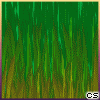- Terriers in general have a lot of energy. Owned a terrier mix before my current dog now. I would recommend exercising him than being very consistent with training. Take anywhere from 5 minutes to even an hour every day to train him. The training style is up to rather you want to do balanced training or R+ Only is up to you and what work's for your dog. I agree that getting him into something like agility would help stimulate him mentally and physically. If you're having a hard time training him yourself try getting a trainer to help you or even do a board and train if needed. As far as maturity Boston terriers typically mature by 10-14 months old. I hope some of this was able to help.
Dog Owner Chat V. 5
Re: Dog Owner Chat V. 5
-

frogandtoad - Posts: 14
- Joined: Sun Oct 11, 2020 5:38 am
- My pets
- My items
- My wishlist
- My gallery
- My scenes
- My dressups
- Trade with me
Re: Dog Owner Chat V. 5
Blackombatboots wrote:I Own a little brown boston terrier, he just turned 2 in august. I need some help, I honestly can't get him to behave at all, he really only behaves when he's tired, what do I do? Is it just a boston terrier thing? Will he mature as he gets older?
He's in need of training and more exercise. He won't suddenly start behaving when he hits a certain age. I recommend only positive reinforcement training. "Balanced" training incorporates positive punishment and can cause physical and psychological harm to your dog, as well as damage your relationship. It doesn't always happen, but it can, so you need to be aware of the pitfalls if you choose to go that route. Punishment isn't necessary for training and studies have shown it's no better than positive reinforcement anyway. Zoo animals, military dogs, service dogs, competition dogs, protection dogs, etc. all over the world can and are trained using only positive reinforcement. So you defiantly don't need punishment of any kind to train your dog.
Working with a trainer is great, though I'd stay away from board and train. The dog needs to learn to work with you and you'll miss out on the great bonding opportunity training can be. Also I live in the US and as long as it's done in the name of "training", pretty much anything can be done to your dog legally. Dogs have even died in board and train and the trainer didn't get in trouble because of this. It's rare compared to all the board and train situation out there, but I personally wouldn't risk it with my dog. If you do decided to go that route use due diligence in researching the trainer/facility.
I suggest you feed only through training or puzzle toys (no more just dumping kibble in a bowl). Keep training sessions short (five to ten minutes) and spaced through out the day. You might also want to keep certain toys as rewards for training if your dog is highly toy motivated. The fact that he finds it easier to focus when he's tired out is fine, and understandable giving his age. Do some exercise before your training if necessary to let him get some of that energy out. Also work on impulse control and attention games.
Remember whatever you do be consistent. You can't allow your dog on furniture most of the time then get angry when he does it when company comes, for example. Dogs also don't generalize well, so while he may be great at sitting on cue in the living room, he may not understand what you're asking him in the dining room. Train him in as many different areas/places as possible. Same goes for distractions, you can't expect him to go from your quiet house to a busy park and get everything right the first time. You need to up one criteria at a time (distraction, distance, duration, etc.) and do so slowly. Also consistency also goes for what cues you use. You can use almost anything, but everyone in the household has to use the same ones. For example, if you use "down" to mean 'lay your body flat on the ground' then don't expect him to understand "down" also means to get off the bed/couch.
Here are some links to training videos/articles to get you started...
The Science Behind Positive Training - https://positively.com/dog-training/positive-training/the-science-behind-positive-training/
Impulse Control Games - https://www.youtube.com/watch?v=IbWFVwrW9qw
What is Clicker Training - https://www.youtube.com/watch?v=_wv1uvvqaSw
No Mugging - https://www.youtube.com/watch?v=PRT6r6d79OU
Why newbies FAIL using TREATS and TOYS to TRAIN DOGS - https://www.youtube.com/watch?v=71T6K9IU9P0
Kikopup Building Attention Playlist - https://www.youtube.com/playlist?list=PLEBF2B84BEEEA6DFA
Reward Scaling - https://www.youtube.com/watch?v=n7XxG5KchQ8&t=4s
How to Phase out Treats and Fade Lures - https://www.youtube.com/watch?v=yZ74wVgoEzY
Looking for a real life pet? http://www.petfinder.com Adopt a homeless Pet!
Give Food To Homeless Pets FREE & Freekibble
Give Food To Homeless Pets FREE & Freekibble
-

Imzadi83 - Posts: 22072
- Joined: Sun Jan 16, 2011 2:47 am
- My pets
- My items
- My wishlist
- My gallery
- My scenes
- My dressups
- Trade with me
Re: Dog Owner Chat V. 5
Imzadi83 wrote:Blackombatboots wrote:I Own a little brown boston terrier, he just turned 2 in august. I need some help, I honestly can't get him to behave at all, he really only behaves when he's tired, what do I do? Is it just a boston terrier thing? Will he mature as he gets older?
He's in need of training and more exercise. He won't suddenly start behaving when he hits a certain age. I recommend only positive reinforcement training. "Balanced" training incorporates positive punishment and can cause physical and psychological harm to your dog, as well as damage your relationship. It doesn't always happen, but it can, so you need to be aware of the pitfalls if you choose to go that route. Punishment isn't necessary for training and studies have shown it's no better than positive reinforcement anyway. Zoo animals, military dogs, service dogs, competition dogs, protection dogs, etc. all over the world can and are trained using only positive reinforcement. So you defiantly don't need punishment of any kind to train your dog.
Working with a trainer is great, though I'd stay away from board and train. The dog needs to learn to work with you and you'll miss out on the great bonding opportunity training can be. Also I live in the US and as long as it's done in the name of "training", pretty much anything can be done to your dog legally. Dogs have even died in board and train and the trainer didn't get in trouble because of this. It's rare compared to all the board and train situation out there, but I personally wouldn't risk it with my dog. If you do decided to go that route use due diligence in researching the trainer/facility.
I suggest you feed only through training or puzzle toys (no more just dumping kibble in a bowl). Keep training sessions short (five to ten minutes) and spaced through out the day. You might also want to keep certain toys as rewards for training if your dog is highly toy motivated. The fact that he finds it easier to focus when he's tired out is fine, and understandable giving his age. Do some exercise before your training if necessary to let him get some of that energy out. Also work on impulse control and attention games.
Remember whatever you do be consistent. You can't allow your dog on furniture most of the time then get angry when he does it when company comes, for example. Dogs also don't generalize well, so while he may be great at sitting on cue in the living room, he may not understand what you're asking him in the dining room. Train him in as many different areas/places as possible. Same goes for distractions, you can't expect him to go from your quiet house to a busy park and get everything right the first time. You need to up one criteria at a time (distraction, distance, duration, etc.) and do so slowly. Also consistency also goes for what cues you use. You can use almost anything, but everyone in the household has to use the same ones. For example, if you use "down" to mean 'lay your body flat on the ground' then don't expect him to understand "down" also means to get off the bed/couch.
Here are some links to training videos/articles to get you started...
The Science Behind Positive Training - https://positively.com/dog-training/positive-training/the-science-behind-positive-training/
Impulse Control Games - https://www.youtube.com/watch?v=IbWFVwrW9qw
What is Clicker Training - https://www.youtube.com/watch?v=_wv1uvvqaSw
No Mugging - https://www.youtube.com/watch?v=PRT6r6d79OU
Why newbies FAIL using TREATS and TOYS to TRAIN DOGS - https://www.youtube.com/watch?v=71T6K9IU9P0
Kikopup Building Attention Playlist - https://www.youtube.com/playlist?list=PLEBF2B84BEEEA6DFA
Reward Scaling - https://www.youtube.com/watch?v=n7XxG5KchQ8&t=4s
How to Phase out Treats and Fade Lures - https://www.youtube.com/watch?v=yZ74wVgoEzY
That’s very useful, thank you!! I’m not old enough to really hire a trainer and I don’t have much time of space to train, but I’ll try my best!!
-

Lilspookiibat - Posts: 2821
- Joined: Tue Nov 20, 2018 11:44 am
- My pets
- My items
- My wishlist
- My gallery
- My scenes
- My dressups
- Trade with me
Re: Dog Owner Chat V. 5
I've never posted here before but I wanted to show off some of the
stuff I've taught my dog. She also knows 10 tricks in total along with other
commands.

" Sit "

" Shake "

" Lay down "
" Rollover "

" Spin around "

" Turn it on "
stuff I've taught my dog. She also knows 10 tricks in total along with other
commands.

" Sit "

" Shake "

" Lay down "
xx

" Rollover "

" Spin around "

" Turn it on "
- ruthless
- Posts: 15426
- Joined: Sat Mar 05, 2016 1:29 pm
- My pets
- My items
- My wishlist
- My gallery
- My scenes
- My dressups
- Trade with me
-

Blue_Aussie - Posts: 3117
- Joined: Fri Nov 27, 2015 11:18 am
- My pets
- My items
- My wishlist
- My gallery
- My scenes
- My dressups
- Trade with me
Re: Dog Owner Chat V. 5
Repaugnant wrote:[center][size=95][color=#222222]I've never posted here before but I wanted to show off some of the
stuff I've taught my dog. She also knows 10 tricks in total along with other
commands.
Adorable! Love the turn it on. Now she just needs to learn to fetch the remote and you're all set, lol.
Looking for a real life pet? http://www.petfinder.com Adopt a homeless Pet!
Give Food To Homeless Pets FREE & Freekibble
Give Food To Homeless Pets FREE & Freekibble
-

Imzadi83 - Posts: 22072
- Joined: Sun Jan 16, 2011 2:47 am
- My pets
- My items
- My wishlist
- My gallery
- My scenes
- My dressups
- Trade with me
Re: Dog Owner Chat V. 5
Blue_Aussie wrote:^Super cute pup! <3
Imzadi83 wrote:Adorable! Love the turn it on. Now she just needs to learn to fetch the remote and you're all set, lol.
Thanks! I would if she hadn't chewed the very tip of it when I first got her. Thank goodness she got out of that phase quickly.
- ruthless
- Posts: 15426
- Joined: Sat Mar 05, 2016 1:29 pm
- My pets
- My items
- My wishlist
- My gallery
- My scenes
- My dressups
- Trade with me
Re: Dog Owner Chat V. 5
- Update we figured out how we're going to travel throughout the state of Nevada with our dogs. We decided the safest and most efficient way is just to keep them both in their kennels. We had to take out the back row of seats to make both kennels fit alongside our equipment, clothes, and etc.
-

frogandtoad - Posts: 14
- Joined: Sun Oct 11, 2020 5:38 am
- My pets
- My items
- My wishlist
- My gallery
- My scenes
- My dressups
- Trade with me
Re: Dog Owner Chat V. 5
got scammed for a labrador.
lets GOOOOOO
in all seriousness, we're getting our money back and getting a lurcher
lets GOOOOOO
in all seriousness, we're getting our money back and getting a lurcher

Hi my name is Shiba or you can call me shib, i dont mind, i come from Europe and i help with closed species! I will not make you a closed species unless i know you personally or if my commissions are open.
I love engaging myself within communities and will always be there to support, no i dont and wont mini mod, but i love to suggest, colour and make!
-

s h i b a - Posts: 105
- Joined: Mon Oct 19, 2020 6:21 am
- My pets
- My items
- My wishlist
- My gallery
- My scenes
- My dressups
- Trade with me
Dog Owner Chat V. 5
- ^^ nooOOOOOOOO ;-; I'm glad you're getting your money back tho

I got 2 new babies! The puppy is technically my boyfriend's but we have been raising him together & he's a total momma's boy so I claim him as mine hehe >:D The baby is a pitbull rat terrier & he's such a sweetheart & loves to cuddle. I'm curious on how big he's gonna get :0
I rescued the big boy from a neglectful owner who was going to throw him to a shelter (basically the person I got him from was temporarily taking care of him bc she didn't want him to go to a shelter, but the owner was a real pain in the butt). He was hella pricey since the owner only wanted to use him for $$$ but he's 100% worth it. I researched so much on how to train & take care of dogs that have been neglected, but to my surprise, he is SUCH a good dog! My friends helped me spend hours cutting off the tangles in his hair (his hair was so matted he basically had 4 ears. I can't even exaggerate how bad his hair was) He always listens & comes when called, drops the toy when playing fetch, very friendly & calm even around other dogs. I think he's a flat-coated retriever of some sort but the brown patches throw me off on what his other breed is. He will pester people to play fetch with him all day & he likes to pet me back for some reason LOL. Also he ALWAYS blinks when I take pics of him



I have a question as a new dog owner tho, what food brands do you guys like the best? My boy only prefers puppy food & won't eat his food unfortunately, & I have bought many different types of food OTL
-

Tanjiro - Posts: 1041
- Joined: Tue Oct 08, 2019 11:27 am
- My pets
- My items
- My wishlist
- My gallery
- My scenes
- My dressups
- Trade with me
Who is online
Users browsing this forum: No registered users and 6 guests



